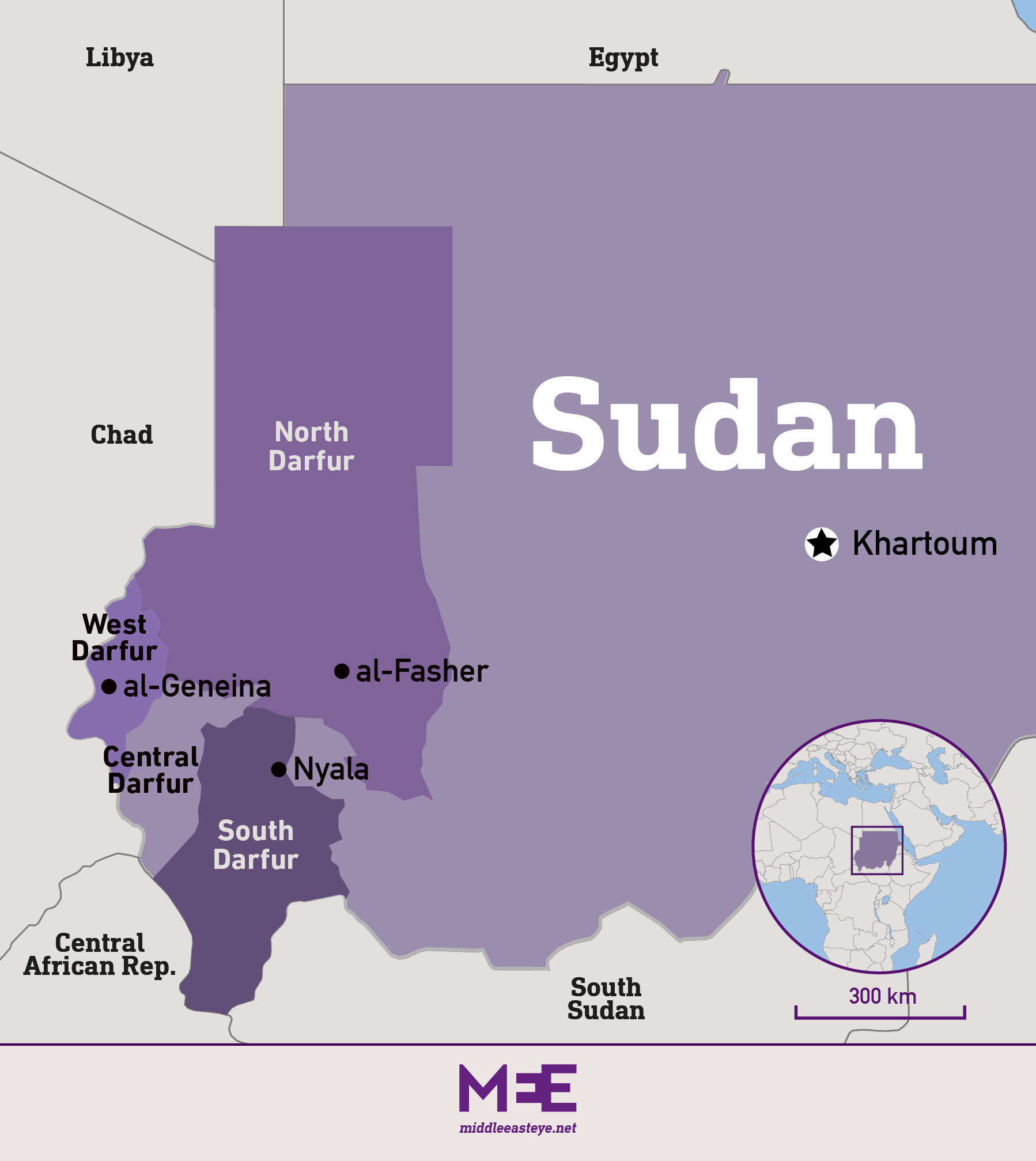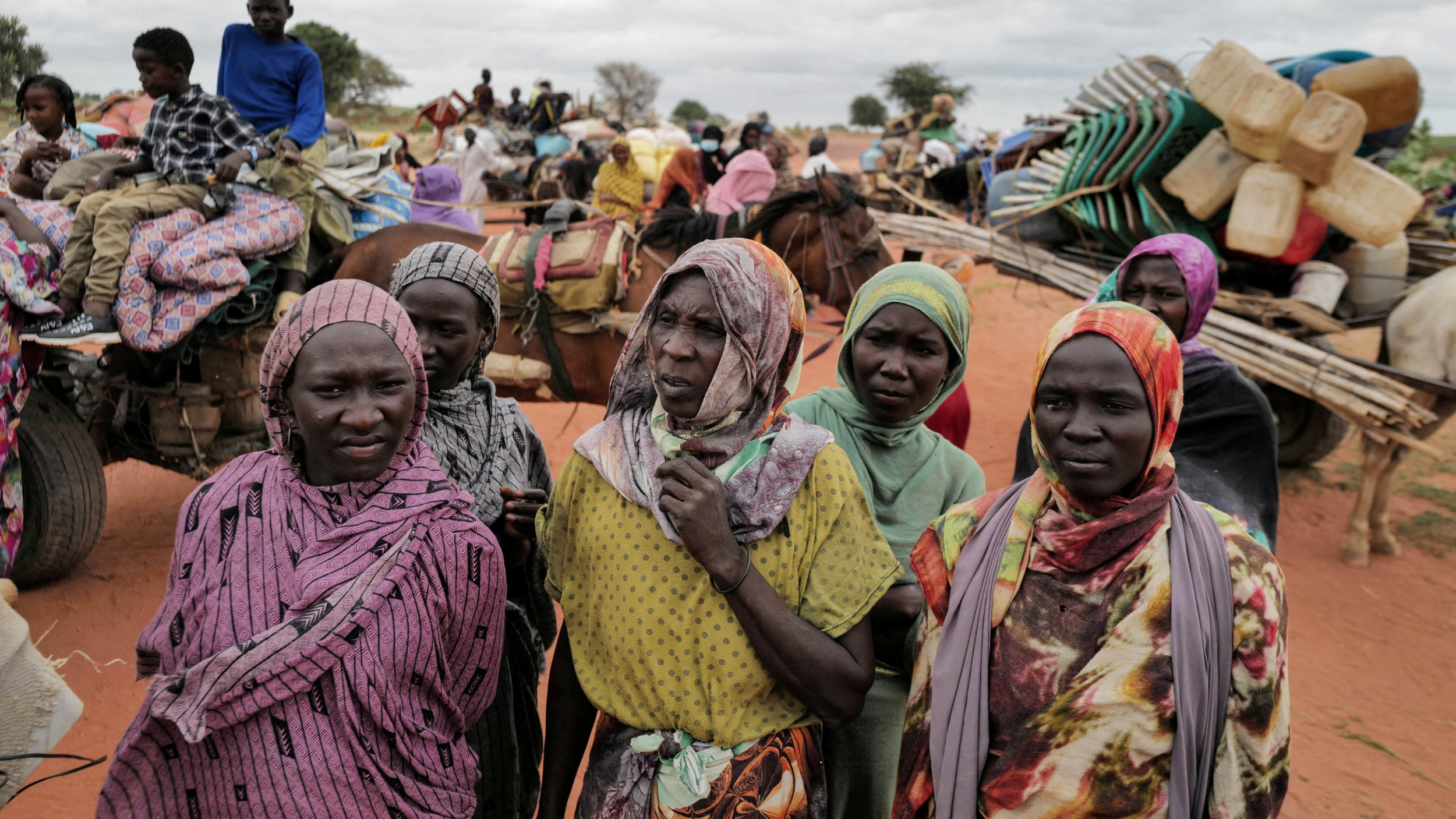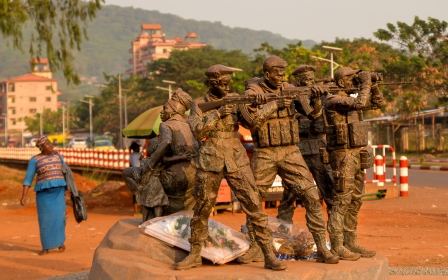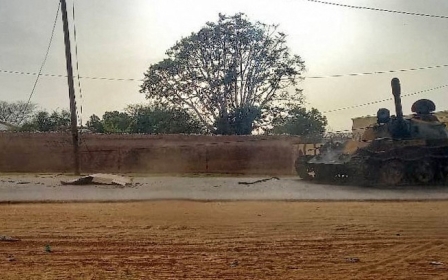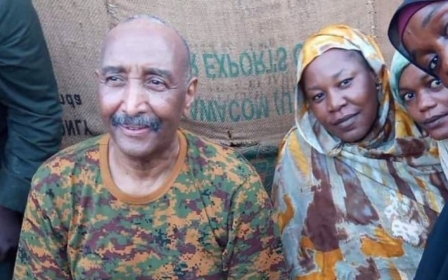Sudan: Darfur atrocities turn isolated Nyala into a lifeless city
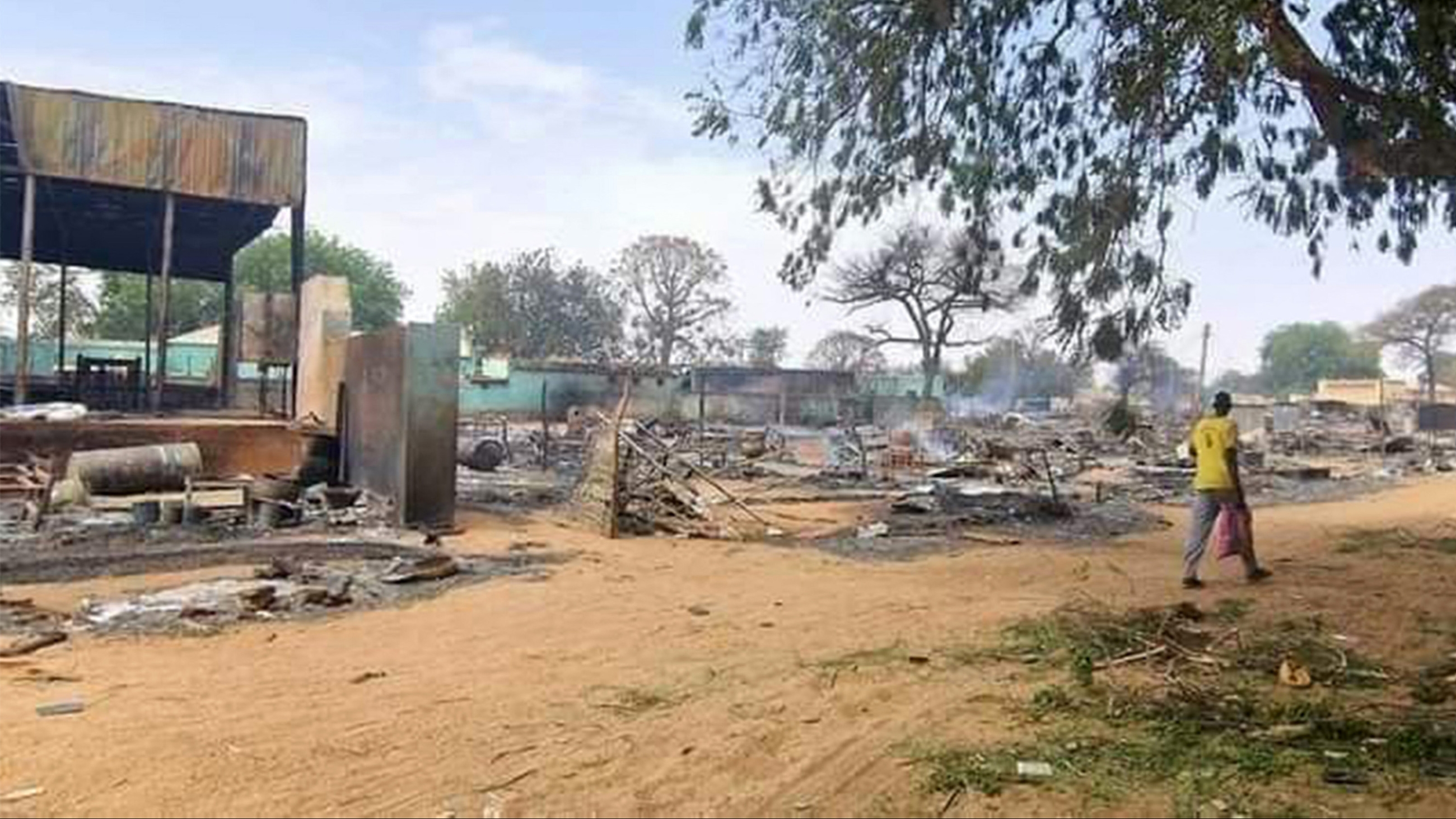
Sudan's Nyala has been turned into a ghost town as fighters are accused of committing atrocities against civilians with dozens of people feared dead.
Several witnesses and activists who spoke to Middle East Eye described seeing scenes of horror in the South Darfur city since early August.
They reported mass killings, sexual violence, looting of homes, attacks on health facilities, destruction of telecommunication towers, and the suspension of water and electricity services.
After nearly a month of intense fighting, there is almost no sign of life in the city, they said, with markets shut down and thousands of people forced into displacement.
There was sporadic fighting in Nyala after the conflict began on 15 April between the Sudan Armed Forces (SAF) and its former ally, the paramilitary Rapid Support Forces (RSF).
New MEE newsletter: Jerusalem Dispatch
Sign up to get the latest insights and analysis on Israel-Palestine, alongside Turkey Unpacked and other MEE newsletters
But battles became more aggressive and extended into the heart of the city last month, and have continued since.
Civilians have been caught in the crossfire, but, with the internet and phone lines cut off, little is known about the scale of violence they have endured.
"The city is isolated and the crimes are ongoing silently with cold blood," Ahmed Gouja, a Nyala-based activist who has now fled the city, told MEE.
The only way news is getting out is through bus passengers and drivers who have been able to leave from time to time, or via those who managed to flee.
'I walked for hours carrying my wounded kids'
- Adam Eissa, displaced Nyala resident
"On 15 August, a bomb fell on our house, killing my father and wounding two of my sons," said Adam Eissa, who lived in the As-Salam neighbourhood located in the northern part of the city.
His home, like many other civilian houses in Nyala, had been shelled, forcing him to flee.
"I walked for hours carrying my wounded kids to Belial locality, where I'm now living with my extended family," he told MEE.
The United Nations said more than 50,000 people had fled Nyala in the first five days of the latest wave of violence. The number is likely much higher.
Mass killings
Mohamed Hussien, who recently fled Nyala to Kosti city, said he witnessed dozens of bombs hitting civilian homes.
"This has led to the killing of hundreds of people," he told MEE.
However, the exact number of casualties has been difficult to pinpoint.
The UN said at least 60 people have been killed and 250 wounded at the start of the renewed clashes between 11 and 17 August.
At least 42 civilians, including women and children, were hiding under a bridge when they were killed in a massacre on 23 August, according to Darfur Network for Human Rights (DNHR).
The NGO said there were other reports of similar massacres, which are happening as both sides launch indiscriminate attacks using artillery fire and air strikes.
'I can say that the majority of houses in the city have been looted by the RSF and its allied militias'
- Mohamed Hussien, witness
Earlier in August, militias believed to be allied with RSF attacked members of the Daju tribe in the Kokoja area, killing several people, DNHR said.
The mass killing happened after tribesmen refused to release their cattle to the militiamen at no cost.
"The militias fired live bullets at cattle keepers, causing severe wounds, migration of civilians into different directions, and the death of 10 herders," DNHR said in a report.
Hussein, who works as a lawyer, told MEE that similar attacks by RSF forces and their allied militia are the main cause of people's displacement.
"Some parts of the city have witnessed brutal attacks by the RSF and its militias, including the neighbourhoods of Texas, Karary and other southern parts of the city," he said.
"I can say that the majority of houses in the city have been looted by the RSF and its allied militias," he added.
The atrocities in Nyala are not the first to be reported in Darfur in the ongoing war, which has re-ignited ethnic violence in the southern Sudan region.
El-Geneina, the West Darfur state capital, was the centre of suspected extrajudicial killings, sexual violence, and other crimes in June, which prompted a war crimes investigation by the International Criminal Court (ICC).
Now, it seems similar crimes are being committed in Nyala.
Latest battleground
Military sources, who like many others preferred to be unnamed because of safety concerns, told MEE that attention turned to Nyala as the warring parties fight for control of the border region with South Sudan and the Central African Republic (CAR).
It is believed that the RSF is getting weapons smuggled into Sudan via the CAR through its allies abroad.
Another source who spoke to MEE over a satellite phone from a locality near Nyala said the RSF occupies the majority of the city while the army is fighting from its barracks around it.
The army is attacking RSF positions using intensive air strikes, sometimes coming from outside the state, as well as strong artillery shelling, the source said.
But the RSF still has the upper hand since it controls most of the city.
On 21 August, the army said its commander of the infantry division in Nyala, Yasser Fadlallah, was killed in unclear circumstances. Reports suggest he was killed by a member of his staff.
Gouja, an activist who's been monitoring developments in Nyala, told MEE the worst violence is happening in the neighbourhoods of Al-Jabal, Al-Gadisya and Al-Hilla al-Gadida where "hundreds of bombs have fallen on houses".
Meanwhile, battles have also raged on along the Sudan-CAR border.
Opposition CAR sources say the Russian Wagner mercenary group has been sending weapons to the RSF through the Am Dafok border town.
The sources added that the SAF has launched heavy air raids in and around Am Dafok to cut off the RSF supply lines.
No medicine or aid
As fighting shows no signs of abating, health workers in Nyala warned the health system is in near-total collapse.
Two medical sources, including one volunteer, told MEE that people had been dying because of a lack of medicine in the city and the difficulty of evacuating them.
"The situation is crumbling. We have seen people bleed to death or forced to stay home without help as they fear coming to the hospitals," one of the sources said.
Only one hospital, the Nyala Sudanese-Turkish Research Hospital, and some small clinics remain operational in the city.
"There is a lack of medicine and medical staff. Some facilities are being operated by volunteers," one of the sources told MEE.
"The militias are everywhere, and they even attacked the hospital and forced the volunteers to treat RSF members," one of the volunteers added.
Meanwhile, those who managed to flee the city are moving into under-equipped makeshift camps, which lack basic services.
Gouja said thousands of people have made it to internally displaced person camps in Kalma, which is already home to thousands more who were displaced during the 2003 Darfur conflict.
Located in the Belial locality east of Nyala, camps in Kalma are seen as relatively safer than the city.
But the humanitarian situation is "disastrous", Gouja said, because of overcrowding and lack of food and health services.
"The people in Kalma are starving because of the lack of food and water, and shortages of everything from health services to access to latrines," Gouja told MEE.
Eissa, who lost his father in the shelling before he fled with his family of six to Belial, described similar issues he has faced.
"There is no work, no money and very little food and services here," he said.
"There is no help from the government or aid organisations, neither of which have access to the entire state."
Middle East Eye delivers independent and unrivalled coverage and analysis of the Middle East, North Africa and beyond. To learn more about republishing this content and the associated fees, please fill out this form. More about MEE can be found here.


